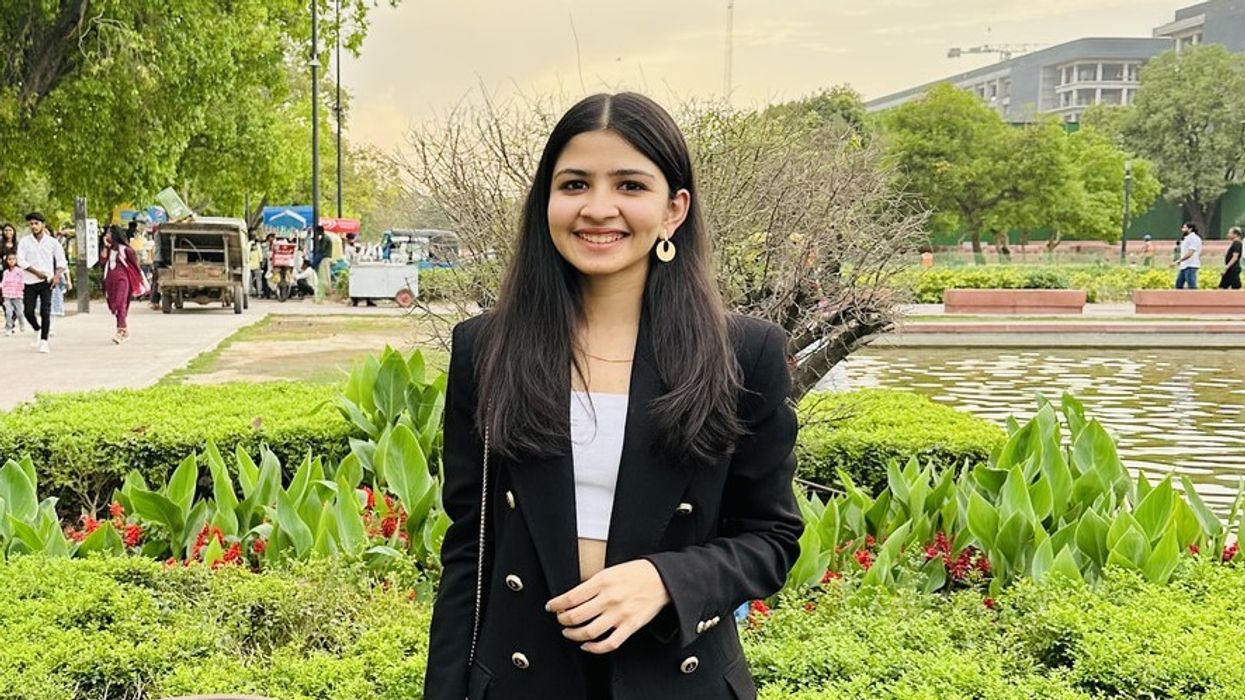FINANCE content creators have become popular in recent times. Sakchi Jain, 23, a qualified chartered accountant, is among those whose expertise and knowledge help social media users save money.
Her advice and top tips have helped her 1.7 million Instagram followers (including those with small businesses) become more financially savvy.
Eastern Eye caught up with Jain to discuss her positive journey and inspirations. She also shared top money-saving tips and advice about online scams.
What attracted you to content creation?
After qualifying as a chartered accountant, I wanted to build my personal identity and work independently. While exploring different options, I discovered content creation. I believed this path would help me reach a broader audience and extend my influence beyond traditional accounting.
I noticed that many young people, despite earning well, struggled with managing their finances and understanding financial terms. By creating finance content, I aim to simplify these concepts and help people make better financial decisions.
How did you discover your expert money-saving ideas at such a young age?
My money-saving ideas come from a mix of professional training and continuous learning. I stay updated with the latest financial trends, read extensively and learn from real-life financial scenarios. This approach allows me to find practical, relevant and effective money-saving strategies.
What has been your most memorable moment?
It was meeting a follower who shared how my content positively impacted their life. Knowing that my work made a tangible difference was incredibly fulfilling. Moments like these motivate me to keep creating valuable content. Additionally, seeing my family and friends proud and happy with my work brings me immense joy.
How important is it to be money-aware given the current cost-of-living crisis?
In the current financial climate, being money-aware is crucial. With the rising cost of living, it's essential to manage expenses carefully, save strategically and invest wisely. Financial awareness helps people make informed decisions, avoid unnecessary debt and build a secure financial future. Despite the challenges, being financially literate and managing money wisely can help individuals navigate these tough times and achieve stability.

What is your top money-saving tip?
My top money-saving tip is to create and stick to a budget. A well-planned budget helps you track your spending, identify areas to cut costs and ensure you save consistently. It's a fundamental step toward achieving stability and reaching your financial goals.
What are the common mistakes people make, in terms of their finances?
Common mistakes include not having a budget, spending impulsively and not saving for emergencies. Many people also neglect to invest for the future, relying solely on savings accounts, which might not keep up with inflation. Additionally, people are often influenced by YOLO (you only live once) and FOMO (fear of missing out), leading them to spend beyond their means. While it's important to enjoy life, it's equally crucial to plan for the future and start investing to build a financial safety net.
How much can planning ahead help?
Planning ahead is immensely beneficial. It allows you to set financial goals, prepare for unexpected expenses, and make informed investment decisions. This proactive approach builds a solid foundation for long-term financial success.
How useful is social media for tips on money management?
Social media has become a valuable resource for financial tips. It provides access to a wealth of information, expert advice, and real-life experiences from people worldwide. However, it's important to verify the credibility of the sources and be discerning about the advice you follow. Social media has made understanding finance terms more accessible through bite-sized videos.
How important is it to be aware of online scams?
Being aware of online scams is critical. Scammers often exploit financial anxieties, luring individuals with promises of easy money or investment opportunities. Social media has helped raise awareness about these scams, but it's crucial to educate our parents and older generations about them. With the rise of AI and information technology, scams are becoming more sophisticated, making it essential to stay vigilant and informed.
How can you tell if you are overspending?
You can tell if you are overspending by regularly reviewing your budget and expenses. If you consistently exceed your budget, rely on credit cards to cover daily expenses, or find it difficult to save, these are clear signs of overspending. Tracking your spending habits can help you identify and address these issues.
What small business tip would you give?
For small businesses, my top tip is to maintain a strong cash flow. Monitor your income and expenses closely and ensure there is sufficient liquidity to cover operational costs. Additionally, invest in building customer relationships to foster a loyal customer base. It’s important to manage resources wisely and avoid unnecessary expenses, especially when starting out.
What are your future plans?
My future plans include expanding my content reach and exploring new platforms to share financial advice. I aim to create more comprehensive financial guides and possibly launch a series of workshops or webinars. Continuing to educate and empower people financially remains my primary goal.
What inspires you?
I’m inspired by the impact that financial literacy can have on people’s lives. Seeing individuals gain confidence in managing their finances and achieving their financial goals motivates me to keep creating content. The potential to make a positive difference in society through financial education is a powerful source of inspiration for me.
Instagram: @ca.sakchijain




